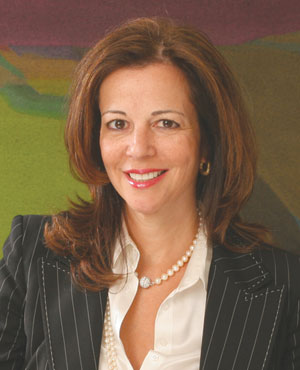While the Law Society of Upper Canada is hailing its Justicia project following the decision to extend it, at least one lawyer doesn’t think much of the effort.

“My mind is boggled by this,” says Inga Andriessen of Andriessen & Associates in Toronto.
“I’m confused as to why the LSUC feels female lawyers would need the extra help. I don’t think they need the LSUC to guide them along.”
The comments come as at least two other provinces indicate they’re considering following the LSUC’s lead on measures to retain women in the profession.
In British Columbia, the law society says it’s already seeing lots of enthusiasm for a similar effort there.
“I’m extremely pleased with the reaction I’ve had from firms,” says Susanna Tam, Law Society of British Columbia’s equity and diversity co-ordinator.
“I was contacting them as part of the feasibility process to gauge interest for the program in B.C. and many said, ‘Where do I sign?’”
Manitoba is considering a program as well, while people in involved in the issue in Ontario say the LSUC effort has addressed a significant problem.
“Of course, it’s close to my heart,” says WeirFoulds LLP managing partner Lisa Borsook, who served on the steering committee for the LSUC’s retention of women in private practice working group.
“Women are graduating at much higher rates from law school than ever before and yet they’re not being retained. . . . It will be really interesting to see the results.”
Benchers approved a two-year extension to the program at Convocation last month, a move welcomed by Ritu Bhasin, a lawyer who bills herself as a diversity specialist at Bhasin Consulting Inc.
“The law society has taken a real leadership role in the whole process,” she says. “They’ve brought together a range of firms, in addition to representatives from large firms, to discuss this important issue and form a think tank, a collective gathering of information.
Because I work a lot with equality issues, I think people coming together to share ideas is very important.”
Since the project began in 2008, more than 55 large- and medium-sized firms across Ontario have signed up to work with the project.
Through it, the LSUC works with the firms to identify and adopt principles and best practices in order to retain and advance women in private practice.
“My hope is that resources will be created and collected in the future that allow women to reach their goals,” says Bhasin.
“I hope they take that knowledge back to the firms and create education opportunities in the future.”
As part of the B.C. efforts to deal with the issue, Tam is working to get a change-of-status survey in place to collect more qualitative data about the factors that cause women to move from full- to part-time or non-practising status.
“We need to know what makes them leave so we can figure out what’s most likely to make them stay,” says Tam.
Along with the Justicia extension last month, the LSUC also decided to continue the parental leave assistance program until Dec. 31, 2012.
The program aims to support lawyers in sole practices and practitioners at small practices of five lawyers or less after they give birth to or adopt a child.
It provides them with $750 a week for up to 12 weeks if eligible. So far, just 148 lawyers have received benefits under the program since it began in March 2009.
Convocation approved the extension in order to give the LSUC time to evaluate the program and consider the impact of the recent expansion of employment insurance benefits to the self-employed.
“I think the other issue that you have to consider is that . . . to my understanding, if you opt into the federal EI program, then you are going to be paying those premiums for the rest of your working career,” Bencher Susan McGrath noted at Convocation.
In comparison, the law society notes its program “provides a fixed sum of $750 a week to eligible applicants for up to 12 weeks” rather than through a scheme that would require payment of ongoing premiums.
“I think including the people who are involved in the front lines in the discussion is very important,” says Bhasin.
Andriessen, however, notes that when she became pregnant, she looked at her situation and planned the entire process of how she’d manage being both a lawyer and a mother.
“I find the whole thing a really discriminatory policy,” says Andriessen. “It really devalues female lawyers overall.
I mean, if you can’t figure out something so important in your own life and plan accordingly, how can you really make recommendations to clients and be paid for that?”

 “My mind is boggled by this,” says Inga Andriessen of Andriessen & Associates in Toronto.
“My mind is boggled by this,” says Inga Andriessen of Andriessen & Associates in Toronto.